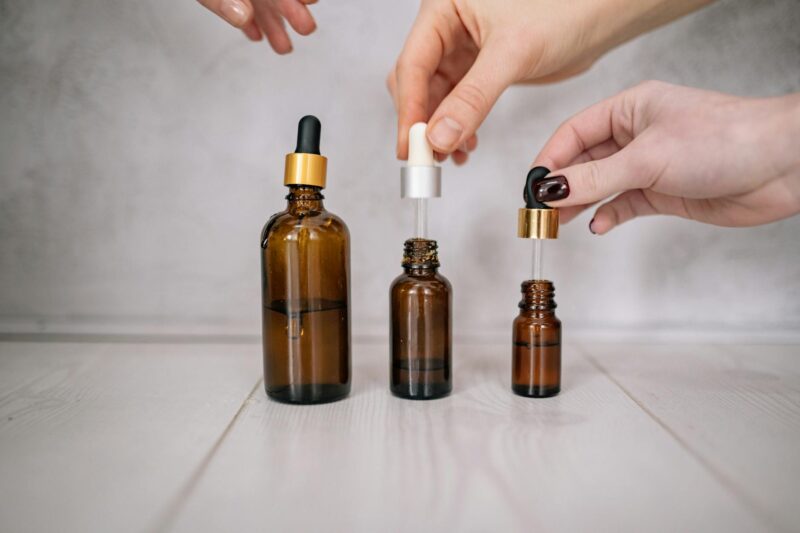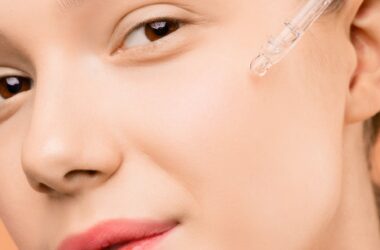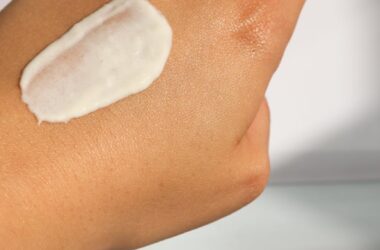It’s a question many pregnant women are asking: Can I use alpha-arbutin while breastfeeding?
Stay tuned as I answer this question by putting together some of the world’s most reputable sources on the subject into one simple answer that anyone can understand.
Can You Use Alpha-arbutin While Breastfeeding?
Yes, you can use alpha-arbutin while breastfeeding. Alpha-arbutin is a chemical compound derived from the bearberry plant, which has been used for many years in Europe to lighten skin tone.
It is considered to be more effective than hydroquinone, another skin bleaching compound, with less potential for side effects.
Alpha-arbutin works by inhibiting the production of melanin; hydroquinone inhibits its production and oxidation.
The concentration of alpha-arbutin in over-the-counter skin lightening products varies widely; check the label for specifics.
Some women report that it works very well; others find it minimally effective or ineffective.
The only way to know if it will work for you is to try it.
You can use alpha-arbutin while breastfeeding, but keep in mind that there is no guarantee of success, even when using a product with a high concentration of this ingredient.
Is It Safe to Use Alpha Arbutin While Pregnant?
There are no known side effects of taking arbutin while pregnant.
However, it is always best to check with your doctor before taking any type of supplements while pregnant.
Alpha arbutin is a safe supplement for pregnant women because it has not been linked to any negative side effects during pregnancy.
You should begin taking alpha-arbutin before becoming pregnant and continue taking it throughout your pregnancy.
As with most medicines and supplements, there are many ways to use alpha arbutin.
Some people apply alpha-arbutin directly to their skin as a “skin whitening” agent for hyperpigmentation (brown spots).
Other people prefer to take oral supplements instead of applying it topically to their skin.
When taken orally, alpha arbutin works as an anti-glycation agent.
Anti-glycation agents are substances that prevent sugars from attaching themselves to proteins in your body, thus preventing glycation damage that can lead to complications during pregnancy such as gestational diabetes or even miscarriage.
How Does Alpha Arbutin Work for Hyperpigmentation?
Alpha-arbutin works by inhibiting the transfer of melanosomes, which are pigment granules in the epidermis.
These pigment granules cause hyperpigmentation and uneven skin tone when they are not transferred to the keratinocytes in the skin.
Alpha-arbutin inhibits this transfer, thus preventing hyperpigmentation.
By inhibiting the transfer of pigment granules, alpha-arbutin prevents melanosomes from becoming overly concentrated in one area of the epidermis.
This prevents irregular pigmentation and resulting blotchiness or patchiness on the skin.
In some cases, alpha-arbutin can be combined with other skin-lightening agents (such as retinol or kojic acid) to further reduce pigmentation spots and give an even tone to the skin.
Is Alpha Arbutin Natural?
Yes, it is. Alpha arbutin is a glycoside, which means it is derived from plants and is completely natural.
Alpha arbutin is a compound found in the bearberry plant and is used as a skin lightener, a bleaching agent, and a topical treatment for hyperpigmentation.
It can be used to treat acne and sun-damaged skin.
How Much Alpha Arbutin Should You Use Daily?
Alpha arbutin is considered a safer alternative to hydroquinone, which can cause adverse side effects. The recommended dose of alpha-arbutin is 50 – 200 mg per day.
Alpha arbutin is often taken orally, but it can also be used topically in low concentrations of 0.01%.
Topical alpha-arbutin is often used in conjunction with retinoic acid and glycolic acid.
How to Safely Use Alpha Arbutin While Breastfeeding
Treatments containing alpha arbutin are generally safe to use while breastfeeding, but you should take some precautions to avoid complications.
Follow these tips to safely use alpha-arbutin while breastfeeding.
1. Talk to your doctor about your concerns about skin discoloration
Before using alpha arbutin or any other skin lightening product, talk to your doctor if you are concerned about the appearance of your skin.
He or she can help you make a decision based on your specific needs and risks involved with using these products.
2. Do not use alpha-arbutin without first consulting a medical professional
Alpha arbutin is not approved for over-the-counter use in the United States, although it is available abroad.
This means that it has not been rigorously tested for safety and that there may be rare but potentially serious side effects associated with its use.
If you choose to use it, do so under the guidance of a medical professional.
3. Do not take alpha-arbutin supplements orally
Alpha arbutin should not be ingested orally as it may cause serious side effects such as high blood pressure and heart problems.
For instance, in one study, people who took alpha-arbutin supplements experienced headaches, dizziness, heartburn, and muscle pain.
4. Apply alpha-arbutin at night
Alpha arbutin is better absorbed by the skin when sunlight exposure is limited, so apply it at night before bedtime and before applying sun protection in the morning.
Start with a small amount (0.5% concentration) and gradually increase it if your skin doesn’t become irritated or if your dark spots don’t fade away after two weeks of use.
5. Use products containing alpha arbutin sparingly
Treat your skin gently when using alpha-arbutin as it easily can cause irritation.
It is recommended that you use a cream containing alpha arbutin only two or three times per week until your skin becomes accustomed to this product.
If you are experiencing irritation upon use, discontinue use immediately and consult your doctor.
6. Choose a reputable brand of alpha arbutin
There are many different brands of alpha-arbutin available for purchase, and not all of them are created equally.
Some brands include added ingredients that may be more harmful to your baby than others.
Be sure you are using a reputable brand of alpha-arbutin from a company you trust.
7. Avoid using alpha-arbutin if you have any risk factors
If you have any high-risk factors for preterm labor or premature delivery, avoid using alpha-arbutin unless your doctor recommends it.
Also, avoid using this product if you have had any preterm births in the past or have an active yeast infection such as thrush.
Final Thoughts
If you are currently pregnant, alpha arbutin should be used only when it is medically necessary.
It is recommended to speak with a physician before using alpha-arbutin while breastfeeding.







